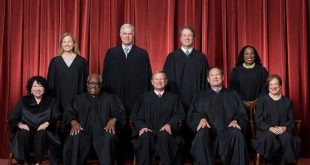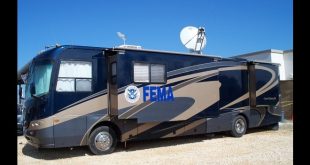 The federal government must detain illegal aliens who’ve served time for deportable offenses, no matter long ago they were released, and can hold them indefinitely.
The federal government must detain illegal aliens who’ve served time for deportable offenses, no matter long ago they were released, and can hold them indefinitely.
The U.S. Supreme Court handed down this 5-4 decision (PDF) on Tuesday, reversing a U.S. Court of Appeals for the Ninth Circuit decision, which would have exempted these illegal aliens from mandatory detention unless picked up immediately after release from serving time.
How feasible is this in a “sanctuary” jurisdiction?
The court disagreed with the plaintiffs’ interpretation of federal law. From the Hill (emphasis added):
In delivering the decision, which split the justices along their ideological lines, Justice Samuel Alito said the 9th Circuit’s interpretation conflicts with the plain text and structure of the law Congress created for immigrants who have committed certain dangerous crimes.
“If the alien evades arrest for some short period of time — according to respondents, even 24 hours is too long — the mandatory-detention requirement is inapplicable, and the alien must have an opportunity to apply for release on bond or parole,” he said.
“Four other circuits have rejected this interpretation of the statute, and we agree that the 9th Circuit’s interpretation is wrong.”
Photo credit: ICE
 CURE News and Clergy Blog News and Commentary for Christians
CURE News and Clergy Blog News and Commentary for Christians




The United States Supreme Court ruled in United States v. Wong Kim Ark, which was decided in 1898. Wong Kim Ark was born in San Francisco to Chinese parents legally residing there. He later returned with his parents to China. Denied re-admittance, Wong Kim Ark argued before the Supreme Court that the Fourteenth Amendment, which states that “all persons born or naturalized in the United States, and subject to the jurisdiction thereof,” are United States citizens, made him a citizen of the United States at his birth. The Supreme Court agreed, holding that, because his parents were legally residing in the United States when he was born here, he was a citizen at birth under the Fourteenth Amendment. The holding of this case is widely misread as conferring citizenship at birth under the Fourteenth Amendment on all persons whatsoever born in the United States (with the narrow exceptions of children of diplomats, members of an invading force, or Indians born in the allegiance of a tribe). This ruling shows in its brief that this reading is wrong; the Court clearly excluded the children of illegal aliens and non-U.S. residents from constitutional birthright citizenship. Meanwhile, millions have been assumed to be citizens even though the Supreme Court has held they are not. An entire industry has even grown up catering to so-called ‘birth tourists,’” Wilcox further noted. “These are foreigners who come here only long enough to have a child on American soil, in the belief that doing so will confer American citizenship on that child. Their belief, too, is mistaken.